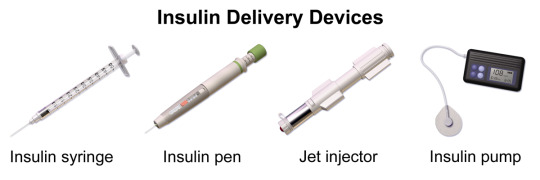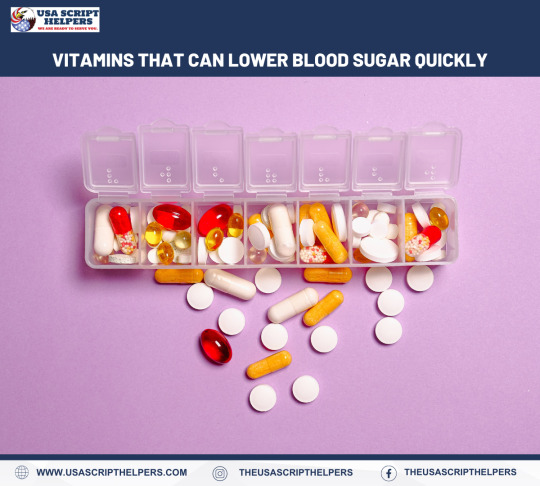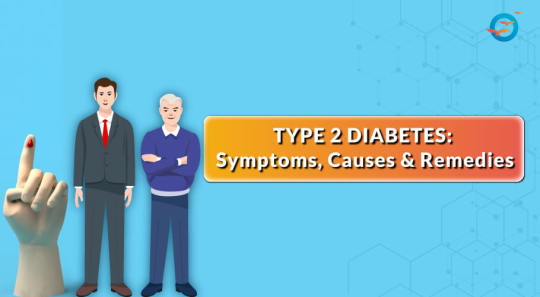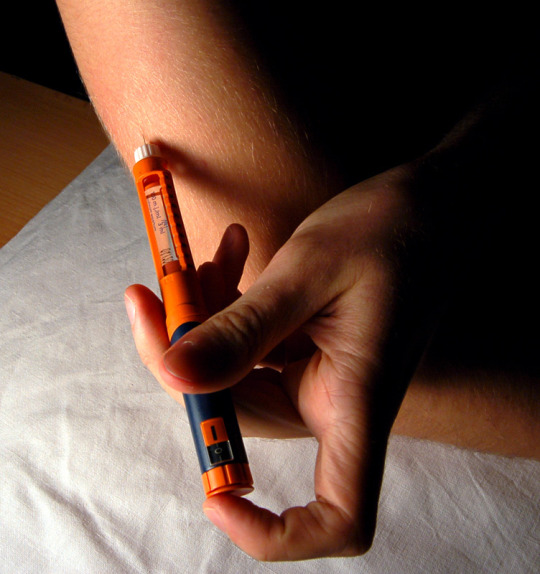#diabetes mellitus type 2
Text
youtube
#diabetes#type 2 diabetes#type 2 diabetes (disease or medical condition)#understanding diabetes#type 1 diabetes#health#best foods for diabetes#diet for diabetes#foods for diabetes#what is diabetes#diabetes mellitus (disease or medical condition)#diabetes symptoms#diabetes mellitus#diabetes uk#diabetes type 2#healthy eating#health (industry)#what is type 2 diabetes#diabetes mellitus type 2#type 2 diabetes diet#diabetes treatment#Youtube
0 notes
Text

Diabetes: Types, causes, and related disorders
When glucose in the bloodstream exceeds the permissible level, it results in high blood sugar. This high blood sugar leads to further complications like vision loss, disorders of the circulatory system, nervous system, and immune system. Diabetes impacts health in several ways, over time. Some of these are considered chronic and debilitating, while some of them can be cured.
Read more: https://www.freedomfromdiabetes.org/blog/post/diabetes-types-causes-and-related-disorders/2999
#diabetes#diabetes mellitus#type 2 diabetes#type 1 diabetes#gestational diabetes#types of diabetes#what causes diabetes#what is diabetes#diabetes mellitus type 2#diabetes treatment#how to control diabetes#type 2 diabetes symptoms#what is type 2 diabetes#causes of diabetes mellitus#diabetes mellitus symptoms#freedom from diabetes
0 notes
Text
Btw i finally found a good diabetic friendly snack! Hippeas nacho and ranch chips. The nachos are like 1% better than the ranch, as in the nacho was closest to nacho doritos while ranch is just like a smidge behind but still really good. good strong flavors, doesnt taste "healthy"


i was worried they would have a strong chickpea flavor but they dont! not much in the bag, and the price might not be worth for some,
but if youre diabetic and plant based or vegan then these are great as a snack if youve got some heavy cravings
8 notes
·
View notes
Text

Insulin (medication)
#insulin#insulin delivery devices#wikipedia#wikipedia pictures#medicine#medcore#medicalcore#medicore#medical#tech#technology#techcore#technologycore#medical devices#diabetes mellitus#type 1 diabetes#type 2 diabetes#diabetes#insulin pump#insulin pen#insulin injection#syringe#jet injector
85 notes
·
View notes
Text

VITAMINS THAT CAN LOWER BLOOD SUGAR QUICKLY
Balancing blood sugar levels is crucial for maintaining overall health, especially for individuals with diabetes or those at risk of developing the condition. While diet, exercise, and medication play primary roles in managing blood sugar, certain vitamins and supplements can also significantly impact glucose control. This article explores vitamins known for their potential to lower blood sugar levels quickly and efficiently.
Vitamin D
Vitamin D plays a pivotal role in blood sugar regulation by enhancing the body's sensitivity to insulin, the hormone responsible for managing blood glucose levels. Insulin resistance is a common issue in individuals with type 2 diabetes, where the body fails to use insulin effectively, leading to elevated blood sugar levels. Studies suggest that maintaining adequate levels of vitamin D can improve insulin sensitivity and lower blood sugar, thus aiding in diabetes management.
Sources of Vitamin D:
Sunlight exposure
Fatty fish (salmon, mackerel, and sardines)
Fortified foods (milk, orange juice, and cereals)
Vitamin D supplements
Vitamin B1 (Thiamine)
Thiamine is essential for glucose metabolism, helping convert carbohydrates into energy. People with diabetes often have low levels of thiamine, which can contribute to higher blood sugar levels and complications. Thiamine supplements, particularly in the form of benfotiamine (a lipid-soluble derivative of thiamine), have been shown to improve glucose metabolism and reduce the risk of developing diabetes-related complications.
Sources of Vitamin B1:
Whole grains
Pork
Nuts and seeds
Legumes
Thiamine supplements, including benfotiamine
Vitamin B3 (Niacin)
Niacin, or vitamin B3, influences blood sugar control indirectly through its role in converting food into energy. However, high doses of niacin can increase blood sugar levels, making it necessary for individuals with diabetes or those at risk to consult a healthcare provider before taking niacin supplements.
Sources of Vitamin B3:
Turkey
Chicken breast
Peanuts
Mushrooms
Supplements, with medical guidance
Vitamin C
Vitamin C, an antioxidant, can lower blood sugar levels and help manage diabetes by improving glucose metabolism and protecting cells from damage caused by excess sugar in the blood. Research indicates that vitamin C supplementation can help reduce fasting blood sugar levels and improve blood sugar control in people with type 2 diabetes.
Sources of Vitamin C:
Citrus fruits (oranges, lemons, and grapefruits)
Kiwi
Strawberries
Bell peppers
Supplements
Magnesium
Though not a vitamin, magnesium is a crucial mineral that aids in blood sugar control. It plays a significant role in glucose metabolism and insulin action. Low levels of magnesium are linked to insulin resistance, a condition often preceding type 2 diabetes. Increasing magnesium intake through diet or supplements can improve insulin sensitivity and lower blood sugar levels.
Sources of Magnesium:
Spinach
Pumpkin seeds
Almonds
Avocado
Supplements
Chromium
Another essential mineral for blood sugar regulation is chromium. It enhances the action of insulin and is involved in carbohydrate, fat, and protein metabolism. Some studies suggest that chromium supplementation can have a beneficial effect on blood sugar levels, especially for those with diabetes.
Sources of Chromium:
Broccoli
Whole grains
Green beans
Nuts
Supplements
Conclusion
While vitamins and minerals can support blood sugar management, they should complement, not replace, standard treatments such as medication, a balanced diet, and regular physical activity. Always consult a healthcare provider before starting any new supplement, especially if you have diabetes or other health conditions, to ensure it's safe and appropriate for your specific health needs. By integrating these vitamins and minerals into a holistic approach to health, individuals can achieve better blood sugar control and improve their overall well-being.
#usascriphelpersofficial#diabetes care#diabetes treatment#diabetes mellitus#diabetes management#diabetes symptoms#insulin#diabetic#doctors#type 1 diabetic#type 2 diabetes
4 notes
·
View notes
Text
#diabetes complications#diabetes control#type 2 diabetes#diabetes mellitus#healthy food#diabetes#health#nerve damage#healthy diet
0 notes
Text
Type-2 Diabetes: Symptoms and causes
This article is originally published on Freedom from Diabetes website, available here.
In this huge population 95% peoples are suffering form the diabetes. In Type 2 diabetes mellitus, our body either doesn’t make enough amount of insulin, or the body’s cells don’t respond normally to the produced insulin.

Causes of Type 2 Diabetes
Insulin resistance is the main cause of type 2 diabetes. The body’s cells do not allow insulin to work the way it should by letting glucose into its cells. The cells become resistant to insulin. As a result, there is a rise in blood glucose levels. Now lets understand the symptoms of Type-2 diabetes.
Symptoms of Type 2 Diabetes
Polyuria (frequent urination)
Polydipsia (excessive thirst)
Polyphagia (frequent hunger)
Weakness
Feeling tired
Blurred vision.
Numbness or tingling in the hands or feet (Neuropathy).
Slow-healing wounds or cuts.
Unexplained/unplanned weight loss.
Frequent infections.
Dryness of mouth.
There are chances that you may not have any symptoms of type 2 diabetes at all as this develops slowly over several years. An interesting fact is 50% of diabetics have no warning signs of diabetes. So be aware about this symptoms.
You have to know about, If blood glucose levels are not controlled in time, it lead to damage your body’s tissues and organs seriously.Some type 2 diabetes complications can be life-threatening over time too. So conuslt with your doctor accordingly.
To know more about the risk factors of type-2 diabetes, please visit our Article.
Also please connect with me on my Website, Facebook page, and YouTube if you want to stay in touch or give me any feedback!
#type 2 diabetes#what is type 2 diabetes#type 2 diabetes mellitus#type 2 diabetes symptoms#type 2 diabetes treatment#symptoms of type 2 diabetes#causes of type 2 diabetes#cure for type 2 diabetes#risk factors for type 2 diabetes#type 2 diabetes test#how to reverse type 2 diabetes#type 2 diabetes diagnosis#type 2 diabetes prevention#type 2 diabetes Management#Type 2 diabetes Control#Type 2 Diabetes Symptoms#Causes of Type 2 Diabetes#Diabetes Causes and Symptoms
0 notes
Text
youtube
#pre diabetic#youtube#type 2 diabetes#Prevent Type 2 diabetes#lifestyle#diabetes management#healthcare#diabetes mellitus#lifehacks#health and wellness#health care#Youtube
0 notes
Text
How Diabetes Affects Your Feet (Diabetic Foot) - Identifying Diabetic Foot Symptoms - Healthy Feet!
In this video, we delve into what diabetic foot problems really look like and provide valuable insights on how diabetes can affect your feet. Learn about common foot issues that can arise from diabetes and discover essential tips for maintaining healthy feet. If you or someone you know is living with diabetes, this video is a must-watch to ensure proper foot care and overall well-being.
Share This Video: https://youtu.be/t2bze6P7vtY
diabeticfootproblems #diabeticfootissues #diabeticneuropathy
#diabetic neuropathy#diabetes#diabetic foot care#diabetic foot examination#diabetic foot amputation#diabetic foot management#diabetic foot pain#diabetic foot treatment#diabetic foot assessment#diabetic foot problems#diabetic feet#diabetic complications#diabetic foot infection#diabetic foot wound#diabetic foot surgery#diabetic foot ulcer#healthy feet tips#diabetic neuropathy in feet#painful diabetic neuropathy#diabetes symptoms#diabetes mellitus#type 2 diabetes#signs of diabetes#high blood sugar#type 1 diabetes#symptoms of diabetes#type 2 diabetes symptoms#diabetic diet#reversing type 2 diabetes#how to stop diabetes
1 note
·
View note
Text

Diabetes: Types, causes, and related disorders
When glucose in the bloodstream exceeds the permissible level, it results in high blood sugar. This high blood sugar leads to further complications like vision loss, disorders of the circulatory system, nervous system, and immune system.
Read more on this: https://www.freedomfromdiabetes.org/blog/post/diabetes-types-causes-and-related-disorders/2999
#diabetes#diabetes mellitus#type 2 diabetes#type 1 diabetes#gestational diabetes#types of diabetes#what causes diabetes#what is diabetes#diabetes mellitus type 2#diabetes treatment#how to control diabetes#type 2 diabetes symptoms#what is type 2 diabetes#causes of diabetes mellitus#diabetes mellitus symptoms
0 notes
Text
can someone explain why a meal that usually is low glycemic for me and gives off low readings, suddenly gives of a really high blood sugar readings?
its usually like 160 on average but now its 235??
i didnt eat much today, this was my main meal, and so is that a thing? if you dont eat much at all, and then eat a proper meal can that make your blood sugar spike?
ive been sitting for a while, and then got up and took my blood sugar, is that something?
kind of worried bc i was doing so well with keeping my blood sugar under 200, and on average at 160, but then why is it SO high?
edit: just got test results in from today

is this anything?
3 notes
·
View notes
Text

Insulin (medication)
#insulin#insulin injection#insulin pen#wikipedia#wikipedia pictures#medicine#medical#meds#med#medcore#medicalcore#medicore#tech#technology#pharmacore#diabetes#diabetes mellitus#type 1 diabetes#type 2 diabetes#gestational diabetes#medical care#injection#needles
23 notes
·
View notes
Text
youtube
How Diabetes Affects Your Feet (Diabetic Foot) - Identifying Diabetic Foot Symptoms - Healthy Feet!
In this video, we delve into what diabetic foot problems really look like and provide valuable insights on how diabetes can affect your feet. Learn about common foot issues that can arise from diabetes and discover essential tips for maintaining healthy feet. If you or someone you know is living with diabetes, this video is a must-watch to ensure proper foot care and overall well-being.
#diabetic neuropathy#diabetes#diabetic foot care#diabetic foot examination#diabetic foot amputation#diabetic foot management#diabetic foot pain#diabetic foot treatment#diabetic foot assessment#diabetic foot problems#diabetic feet#diabetic complications#diabetic foot infection#diabetic foot wound#diabetic foot surgery#diabetic foot ulcer#healthy feet tips#diabetic neuropathy in feet#painful diabetic neuropathy#diabetes symptoms#diabetes mellitus#type 2 diabetes#signs of diabetes#high blood sugar#type 1 diabetes#symptoms of diabetes#type 2 diabetes symptoms#diabetic diet#reversing type 2 diabetes#how to stop diabetes
1 note
·
View note
Text

🔍 Worried about Type 2 Diabetes? Keep an eye out for these 7 common signs! 🚨 Don't ignore the symptoms! #Type2DiabetesSigns #DiabetesAwareness #HealthTips #usascripthelpers
#diabetes management#diabetes mellitus#diabetes treatment#weight loss diet#diabetic#diabetes symptoms#usascripthelpers#diabetes care#type 2 diabetes#type 2 diabetic
0 notes
Text
#carbohydrates#diabetic friendly#diabetes mellitus#health#diabetic neuropathy#diabetes complications#healthy diet#sugarcontrol#type 2 diabetes
0 notes
Text
youtube
How Diabetes Affects Your Feet (Diabetic Foot) - Identifying Diabetic Foot Symptoms - Healthy Feet!
In this video, we delve into what diabetic foot problems really look like and provide valuable insights on how diabetes can affect your feet. Learn about common foot issues that can arise from diabetes and discover essential tips for maintaining healthy feet. If you or someone you know is living with diabetes, this video is a must-watch to ensure proper foot care and overall well-being.
#diabetic neuropathy#diabetes#diabetic foot care#diabetic foot examination#diabetic foot amputation#diabetic foot management#diabetic foot pain#diabetic foot treatment#diabetic foot assessment#diabetic foot problems#diabetic feet#diabetic complications#diabetic foot infection#diabetic foot wound#diabetic foot surgery#diabetic foot ulcer#healthy feet tips#diabetic neuropathy in feet#painful diabetic neuropathy#diabetes symptoms#diabetes mellitus#type 2 diabetes#signs of diabetes#high blood sugar#type 1 diabetes#symptoms of diabetes#type 2 diabetes symptoms#diabetic diet#reversing type 2 diabetes#how to stop diabetes
1 note
·
View note